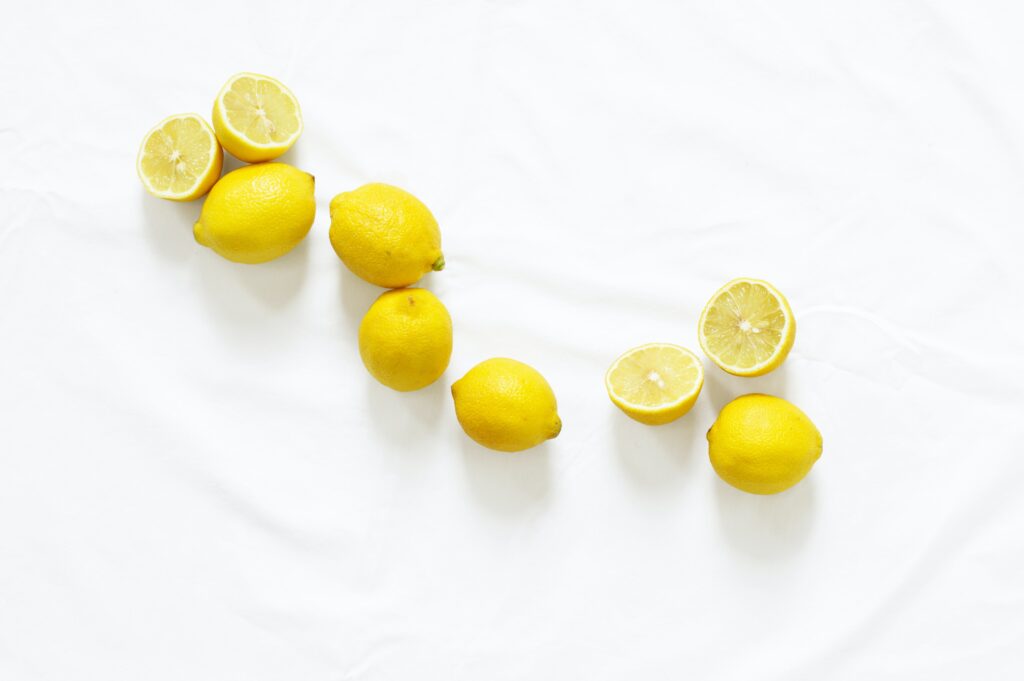Properly disposing of used cooking oil is crucial to prevent the occurrence of clogged pipes and environmental harm. This article explores various options for safe disposal, including storing and disposing of it with regular household waste, taking it to restaurants for proper disposal, contacting a household hazardous waste disposal company, using a grease disposal system, adding it to compost (if vegetable-based oil), or mixing it with absorbent waste materials before disposal. Additionally, the article highlights the possibility of reusing cooking oil by storing it in glass jars for future use in cooking. It offers tips for storing used cooking oil, such as transferring it to a glass container, sealing it tightly, and storing it separately depending on the type of dish it was used for. Finally, it emphasizes the importance of straining the oil before storing it to remove any food particles.

Where To Buy Used Cooking Oil Disposal Options
Properly disposing of used cooking oil
Properly disposing of used cooking oil is essential to prevent clogged pipes and environmental harm. When cooking oil is not disposed of correctly, it can solidify and cause blockages in plumbing systems, leading to expensive repairs. Additionally, improper disposal of cooking oil can result in pollution of water sources and harm to aquatic life. Therefore, it is crucial to understand the importance of proper disposal and the various options available for safe and responsible handling of used cooking oil.
Importance of proper disposal
Preventing clogged pipes
One of the primary reasons for properly disposing of used cooking oil is to prevent clogged pipes. When cooking oil is poured down the sink or drain, it can solidify and congeal as it cools, forming blockages within the pipes. Over time, these blockages can accumulate and restrict the flow of water, leading to backups and potentially costly plumbing repairs. By disposing of cooking oil correctly, individuals can help maintain the integrity of their plumbing systems and avoid the inconvenience and expenses associated with clogged pipes.
Preventing environmental harm
Improper disposal of used cooking oil can have severe environmental consequences. When cooking oil is poured down the drain or flushed down the toilet, it enters wastewater treatment systems. However, these systems are not designed to handle large quantities of oil. The oil can clog the pipes within the treatment plants, impairing their functionality and potentially causing costly damages. Moreover, if the oil bypasses the treatment process, it can contaminate rivers, lakes, and other water sources, leading to environmental pollution. The accumulation of oil on the water surface can prevent oxygen from reaching aquatic plants and wildlife, resulting in adverse effects on their health and the overall balance of the ecosystem. Additionally, if oil is incinerated, it contributes to air pollution by releasing harmful emissions. By properly disposing of used cooking oil, individuals can prevent these negative effects and contribute to a cleaner and healthier environment.

Get Your Used Cooking Oil Disposal Solution Here
Options for safe disposal
There are several options available for the safe disposal of used cooking oil, each with its advantages and considerations. Individuals can choose the method that aligns with their circumstances and local regulations to ensure responsible and effective disposal of cooking oil.
Storing and disposing with regular household waste
One relatively simple option for disposing of small amounts of used cooking oil is to store it in a sealable container and dispose of it with regular household waste. However, it is crucial to check local regulations before employing this method, as some areas may have specific guidelines for handling cooking oil waste. By disposing of used cooking oil with regular household waste, individuals can ensure that it is properly contained and disposed of in an appropriate manner.
Taking it to restaurants for proper disposal
Many restaurants have grease traps or grease collection programs in place to handle used cooking oil. Individuals can inquire with local restaurants or culinary establishments if they accept small quantities of used cooking oil for proper disposal. This option provides a convenient and environmentally responsible solution, as the oil is collected and processed appropriately, often for use in alternative fuel production.
Contacting a household hazardous waste disposal company
Household hazardous waste disposal companies specialize in handling and disposing of materials that require special care, such as chemicals, paints, and oils. Individuals can contact these companies to inquire about their services for the proper disposal of used cooking oil. The advantage of this option is that individuals can rely on the expertise of professionals who can ensure that the oil is disposed of in compliance with environmental regulations.
Using a grease disposal system
Grease disposal systems are designed to handle and dispose of used cooking oil efficiently. These systems typically consist of a specialized container installed in the kitchen or outside the house, allowing individuals to deposit their used cooking oil. The containers are then collected by companies that specialize in grease disposal, ensuring that the oil is treated and processed correctly, often for reuse purposes.
Adding it to compost (if vegetable-based oil)
If the cooking oil is vegetable-based, individuals can consider adding it to their compost pile. This option is environmentally friendly, as the oil can contribute to the decomposition process and enrich the quality of the compost. However, it is important to exercise caution and ensure that the compost pile can handle the addition of oil without causing odor or attracting pests.
Mixing it with absorbent waste materials before disposal
Another option to consider is mixing the used cooking oil with absorbent waste materials, such as cat litter or sawdust, before disposing of it. By combining the oil with these materials, the oil’s liquid texture is absorbed, reducing the risk of leakage or spills during transportation and ultimately facilitating its proper disposal.
Storing used cooking oil
In addition to considering the various methods of disposal, individuals may also find it advantageous to store used cooking oil for future use or until they are ready to dispose of it. Properly storing used cooking oil is crucial to preserve its quality and ensure its safe reuse or disposal.
Reusing cooking oil
Before storing used cooking oil, individuals may explore the option of reusing it. Reusing cooking oil is not only cost-effective but can also add flavor to future dishes. However, it is important to note that cooking oil should not be reused indefinitely, as it can break down and become rancid over time. It is vital to monitor the quality of the oil and discard it if any signs of deterioration, such as a strong odor or discoloration, are present.
Tips for storing used cooking oil
When storing used cooking oil, there are several key considerations to keep in mind. First, it is recommended to transfer the oil from the original container to a glass jar or bottle with a tight-sealing lid. Glass containers are preferable as they do not absorb or retain odors as plastic containers may. Additionally, sealing the container tightly helps prevent the oil from exposure to air, which can accelerate the degradation process. It is also advisable to store the used cooking oil separately based on the type of dish it was used for, as different oils may contain different flavors or seasonings that could affect future recipes.
Importance of straining the oil
Before storing used cooking oil, it is essential to strain it to remove any leftover food particles. Straining helps eliminate debris that can contribute to the degradation of the oil and potentially cause off flavors in future dishes. Straining can be done by using a fine mesh sieve or cheesecloth to ensure the oil is clean and free from any solid particles.

Reusing cooking oil
Reusing cooking oil can be a practical and economical approach for individuals who frequently cook. However, it is important to follow proper methods to ensure the oil’s safety and maintain its integrity.
Benefits of reusing cooking oil
Reusing cooking oil offers several advantages. Firstly, it allows individuals to get the most out of their cooking oil, reducing waste and saving money. Additionally, reusing oil can impart a unique flavor to certain dishes, enhancing the culinary experience. However, it is essential to exercise caution and understand the limitations of reusing cooking oil to prevent any adverse health effects.
Storing used cooking oil in glass jars
When reusing cooking oil, it is best to store it in glass jars rather than plastic containers. Glass jars are less likely to absorb odors and can help maintain the quality of the oil. Additionally, glass jars can be easily cleaned and sanitized for reuse, ensuring that the oil is stored in a safe and hygienic manner.
Proper methods for reheating and reusing
To ensure the safety of reused cooking oil, it is important to follow proper methods for reheating and reusing. When reheating oil, it should be done slowly over low to medium heat to avoid creating smoke or burning the oil. Additionally, it is advisable to strain the oil again before reusing it to remove any particles or impurities that may have accumulated. Finally, it is crucial to monitor the oil’s condition and discard it if it exhibits any signs of degradation or spoilage.
Tips for storing used cooking oil
Properly storing used cooking oil is essential to maintain its quality and ensure its safe reuse or disposal. Here are some useful tips to consider when storing used cooking oil:
Transferring it to a glass container
After the oil has been strained, it is recommended to transfer it from the original container to a clean glass container for storage. Glass containers are less likely to retain odors and can help preserve the oil’s freshness. Additionally, glass containers are easier to clean and sanitize compared to plastic containers, ensuring a hygienic storage environment.
Sealing it tightly
To prevent the oil from coming into contact with air and accelerating its degradation process, it is crucial to ensure that the glass container is tightly sealed. A secure lid or cap will help maintain the oil’s quality and prevent any contamination from external sources.
Storing it separately by type of dish
If individuals frequently cook different types of dishes using different cooking oils, it is advisable to store the used cooking oil separately based on the type of dish it was used for. This separation helps avoid potential flavor contamination when reusing the oil or disposing of it in the future.
Importance of straining the oil
Before storing used cooking oil, it is important to strain it to remove any food particles or debris that may be present. Straining the oil serves two main purposes:
Removing food particles
During the cooking process, food particles and debris can become suspended in the oil. These particles not only affect the oil’s quality but can also contribute to a faster breakdown of the oil. Straining the oil through a fine mesh sieve or cheesecloth effectively removes these particles, ensuring a cleaner and healthier oil for storage or reuse.
Preventing oil degradation
By removing food particles through straining, individuals can help prevent oil degradation. The presence of food particles can accelerate the breakdown process of the oil, leading to off flavors and potential health risks. Straining the oil helps eliminate these particles, minimizing the chances of degradation and allowing for safe and extended storage or reuse.
Effects of improper disposal
Improper disposal of used cooking oil can have severe consequences on the environment and public infrastructure. Understanding these effects highlights the importance of responsible handling and disposal of cooking oil waste.
Environmental pollution
When used cooking oil is not properly disposed of, it can end up in the environment and cause pollution. Oil that is poured down the drain can contaminate water sources, including rivers and lakes, disrupting the delicate balance of aquatic ecosystems. The accumulation of oil on the water surface can prevent oxygen from reaching aquatic plants and wildlife, leading to adverse effects on their health and survival. Additionally, oil that finds its way into the soil can contaminate the ground and have long-lasting effects on plant growth and soil fertility. Proper disposal of used cooking oil helps prevent these forms of environmental pollution and ensures the preservation of natural habitats.
Damage to wastewater treatment systems
Improper disposal of used cooking oil can also wreak havoc on wastewater treatment systems. When oil is flushed down the drain, it enters the pipes and can solidify and accumulate over time, causing blockages and reducing the system’s efficiency. These blockages can lead to costly repairs and maintenance work to clear the pipes and restore the wastewater treatment system’s functionality. By disposing of used cooking oil responsibly, the risk of damage to wastewater treatment systems is minimized, ensuring their proper functioning and longevity.
Preventing clogged pipes
Cooking oil is one of the leading culprits of clogged pipes. Understanding how cooking oil causes clogs and implementing preventive measures can help individuals avoid the inconvenience and expenses associated with plumbing issues.
How cooking oil causes clogs
Cooking oil, when poured down the sink or drain, may seem harmless initially. However, as the oil cools, it solidifies and congeals, sticking to the inner surface of the pipes. Over time, this buildup continues to accumulate, thickening and restricting the flow of water. Eventually, the clogs can become severe, leading to slow drainage, backups, and potential pipe blockages. It is important to understand that even small amounts of cooking oil can contribute to clogs when improperly disposed of, making responsible disposal practices crucial.
Methods to prevent clogs
Preventing clogged pipes requires proactive measures to minimize the accumulation of cooking oil and other greasy substances. Some effective methods to prevent clogs include:
-
Cooling and solidifying: Before disposing of any cooking oil, allow it to cool and solidify. Once solidified, it can be safely scraped into a sealable container for disposal. This approach reduces the likelihood of oil adhering to the pipes and causing clogs.
-
Wipe or scrape oily dishes: Before washing oily dishes or cookware, it is advisable to wipe or scrape away excess oil or grease. This removes a significant portion of the oil and reduces the amount that enters the drain.
-
Using strainers or screens: Installing strainers or screens over sink drains can help trap food particles and oil before they enter the pipes, preventing clogs. These strainers can be easily cleaned or emptied into the trash.
Implementing these preventive measures can significantly reduce the risk of clogged pipes and minimize the need for costly plumbing repairs.
Impact of clogs on plumbing systems
Neglecting proper disposal of used cooking oil and ignoring preventive measures can lead to severe consequences for plumbing systems. Over time, the accumulation of cooking oil and grease in the pipes can result in partial or complete blockages, affecting the drainage and functionality of the plumbing system. Clogs can lead to slow drainage, backups, foul odors, and in extreme cases, potential pipe bursts. Repairing clogged pipes can be time-consuming and costly, involving professional intervention and, in some cases, excavation. By taking preventive measures and ensuring proper disposal of cooking oil, individuals can help preserve the integrity of their plumbing systems and avoid unnecessary expenses.
Preventing environmental harm
Improper disposal of used cooking oil poses significant risks to the environment. Understanding the potential consequences can inspire individuals to adopt responsible practices to minimize environmental harm.
Contamination of water sources
When used cooking oil is poured down the drain or flushed down the toilet, it can find its way into water sources, such as rivers, lakes, or underground aquifers. These water sources are integral to ecosystems, providing habitats for numerous species and serving as drinking water sources for communities. Contamination of water sources with cooking oil can have detrimental effects on aquatic life and compromise the quality of the water for consumption and other uses. By properly disposing of cooking oil, individuals can help protect and preserve water sources, ensuring their sustainability for future generations.
Negative impact on aquatic life
Used cooking oil can be particularly harmful to aquatic life. When oil enters water bodies, it forms a film on the surface, blocking oxygen from reaching underwater plants and organisms. Deprivation of oxygen can lead to the suffocation and death of aquatic species, disrupting the delicate balance of the ecosystem. Additionally, if ingested, oil can adhere to fish and other aquatic organisms, impairing their ability to swim, eat, and breathe. By disposing of used cooking oil responsibly, individuals can contribute to the conservation of aquatic life and maintain the biodiversity of our water ecosystems.
Contribution to air pollution
Improper disposal of used cooking oil can also result in air pollution. When oil is incinerated, it releases harmful emissions into the atmosphere, contributing to air pollution. These emissions can contain substances such as carbon monoxide, volatile organic compounds (VOCs), and particulate matter, which have detrimental effects on air quality and human health. By adopting proper disposal methods, such as recycling or reusing cooking oil, individuals can help minimize their contribution to air pollution and create a healthier environment.
In conclusion, properly disposing of used cooking oil is of utmost importance to prevent clogged pipes and environmental harm. Various options for safe disposal, such as storing and disposing with regular household waste, taking it to restaurants, contacting a hazardous waste disposal company, using a grease disposal system, adding it to compost, or mixing it with absorbent waste materials, offer individuals the flexibility to choose the most suitable method. Additionally, storing used cooking oil correctly by reusing it, transferring it to glass jars, and straining it helps maintain its quality for future use or disposal. By understanding the effects of improper disposal, such as environmental pollution and damage to wastewater treatment systems, individuals can recognize the importance of responsible practices. Finally, implementing preventive measures to prevent clogged pipes and minimizing environmental harm by preventing contamination of water sources, protecting aquatic life, and reducing air pollution further underscores the significance of proper disposal and responsible handling of used cooking oil.
